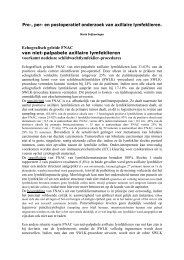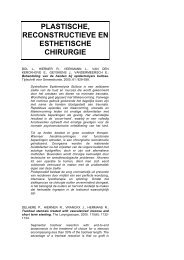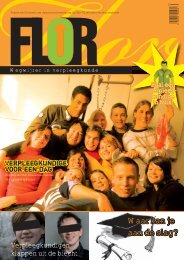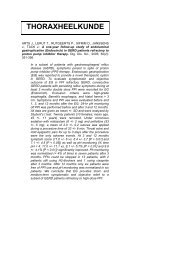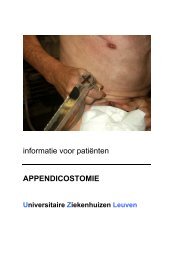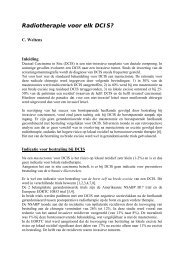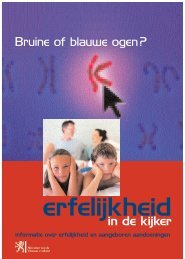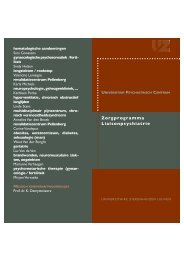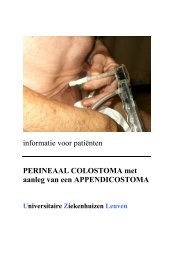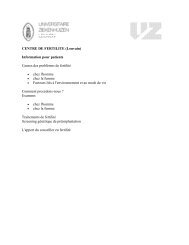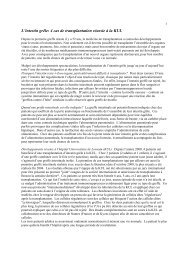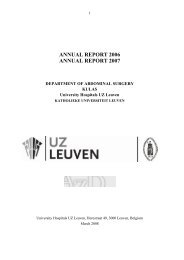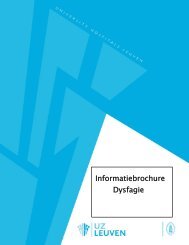2006 - UZ Leuven
2006 - UZ Leuven
2006 - UZ Leuven
Create successful ePaper yourself
Turn your PDF publications into a flip-book with our unique Google optimized e-Paper software.
Introduction & Objectives: In order to provide further insight into thesexual ecology of the 50+ population in Belgium, we developedseparate questionnaires for men and women, which were distributedduring a convention for the 50+ population.Material & Methods: During the 2004 convention, 947 men (45,1%)and 1151 women (54,9%) spontaneously completed the questionnaire(N = 2098). To guarantee anonymity, each subject was asked to puttheir questionnaire into a limited access container. Subjects: meanage was 61.3 years (47,7% were between 56 and 65 years). 92,7%(1944) declared they were in a stable relationship (77,7% for morethan 10 years). 74,3% declared it was their first marriage. 64.2% wereretired.Results: For men and women, penetration came 14.8 minutes(median 12 minutes) from the beginning of the foreplay. Thiscorresponded with the finding that 86% of them would be satisfiedwith a drug that worked within 30 minutes. 71,2% of subjects reportedminimum 1 sexual problem. ED was reported in 49% and this ED preexistedfor 4.3 years (median 2 years). Age, stress, psychologicalproblems and medication were considered as the most importantcauses by this population which may explain why only 53% of theseED cases consulted a physician for their ED. From this consultationmedication was prescribed in no more than 63% of cases. Moreover,only 54% of the patients did take the medication (14% at eachintercourse and 41% from time to time).Conclusions: The cohort of the retired people is not aware of theimportant influence of organic factors as smoking, alcohol and beingoverweight on ED. If medication was prescribed, they would besatisfied with a drug that worked within 30 minutes. There still exists ahigh reluctance in patients as well as in doctors to treat ED.DARRAS J., JONIAU S., VAN POPPEL H.: Salvage radical prostatectomyfor radiorecurrent prostate cancer: Indications and results. Eur. J. Surg.Oncol., <strong>2006</strong>; 32: 964-969.Aims: A rise in the incidence of radiorecurrent prostate cancer is to beexpected, since approximately one third of early prostate cancercases are nowadays treated with a radiotherapy modality. Onepossibility in treating radiorecurrent prostate cancer is salvageprostatectomy. Our objective was to look into our own experience withsalvage radical prostatectomy and to analyse outcome and morbidity.Methods: A computer search through our hospital database identified11 patients who underwent a salvage radical prostatectomy forradiorecurrent cancer over the last 15 years. All data wereretrospectively analysed and confronted with the literature.134



